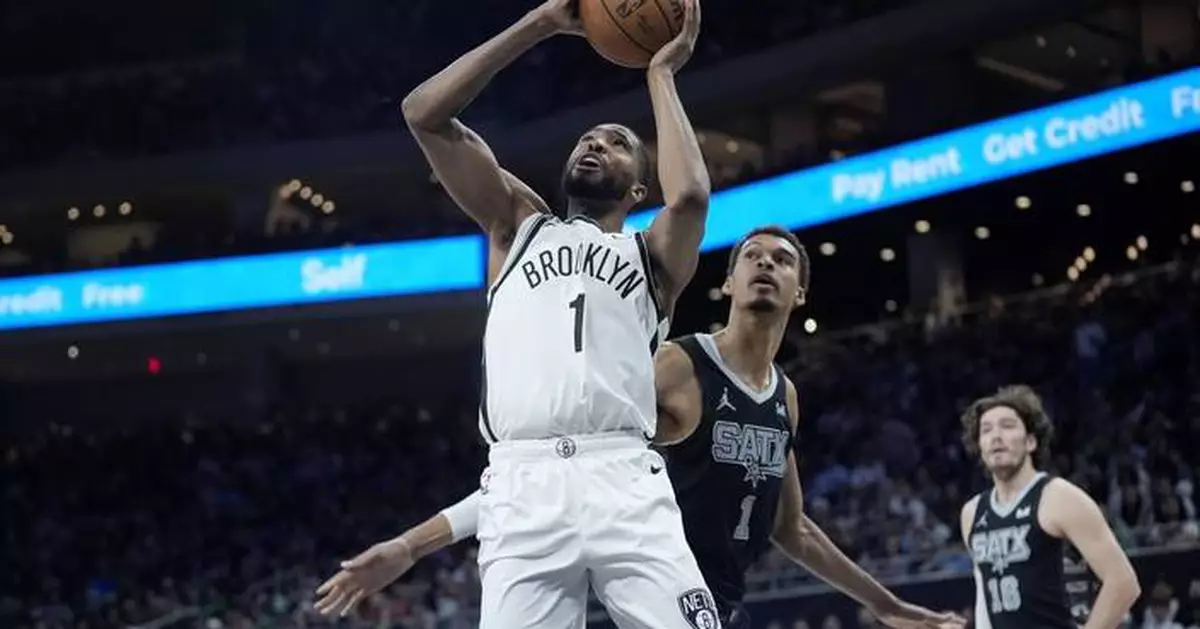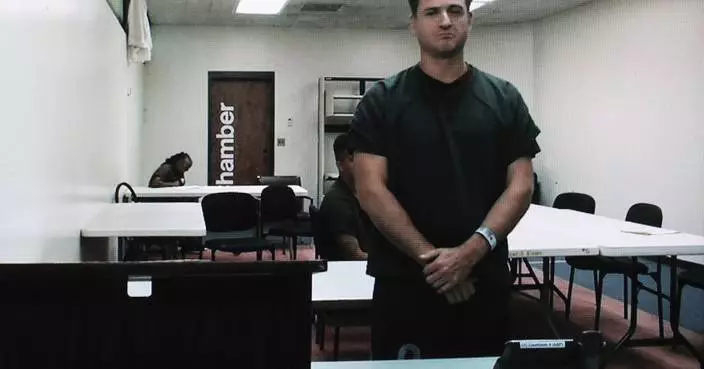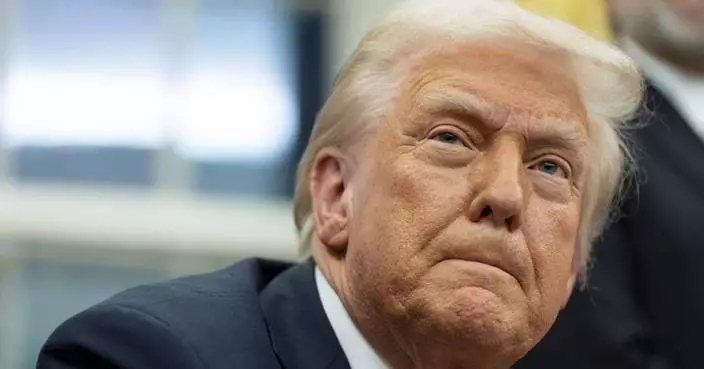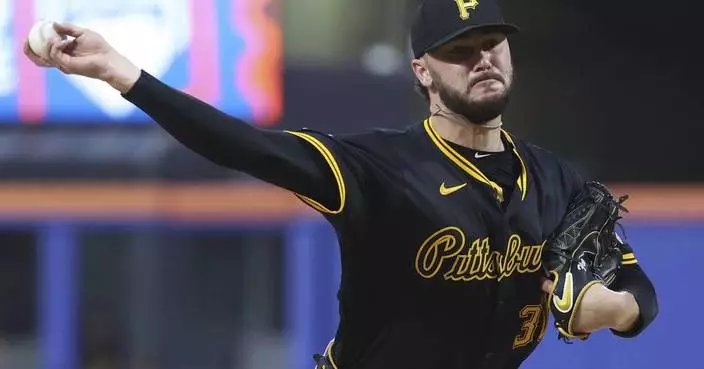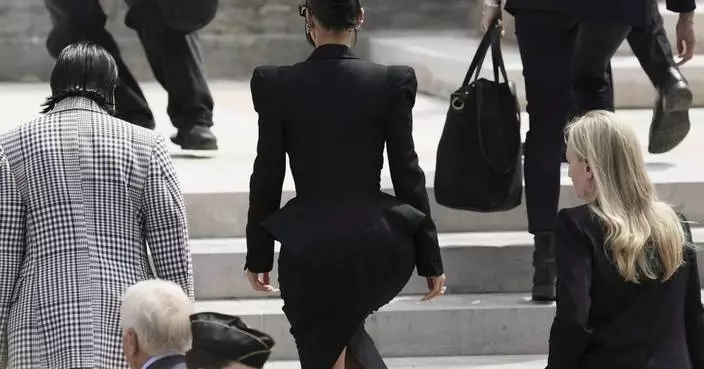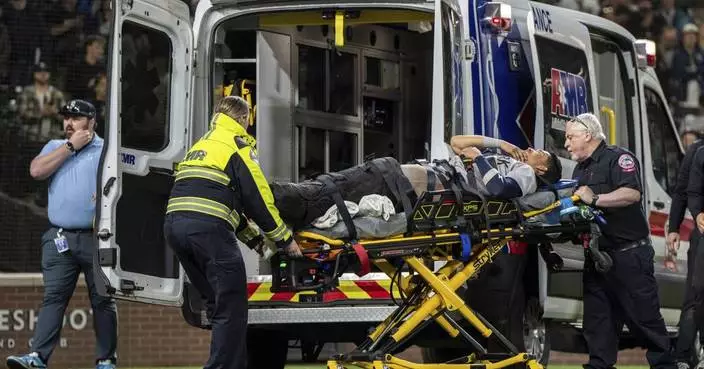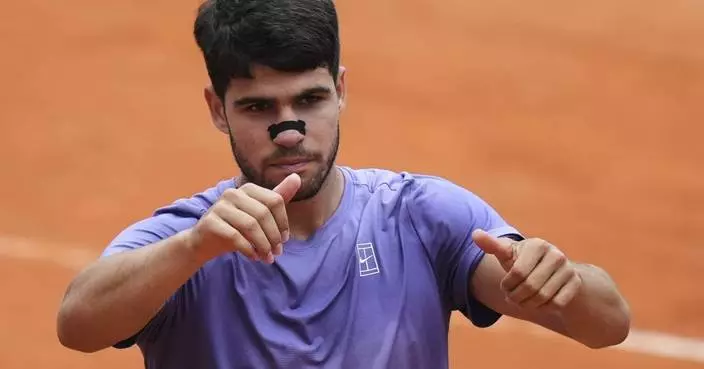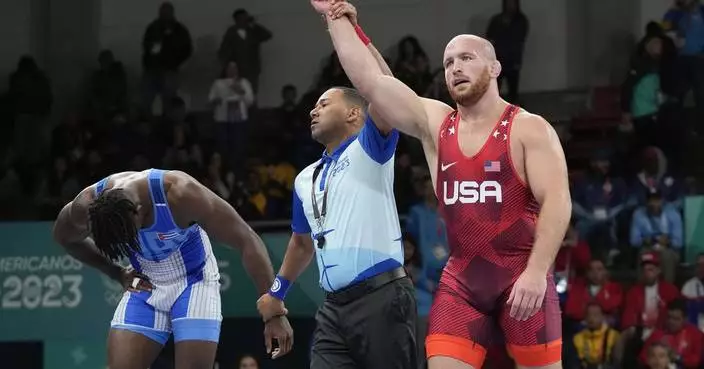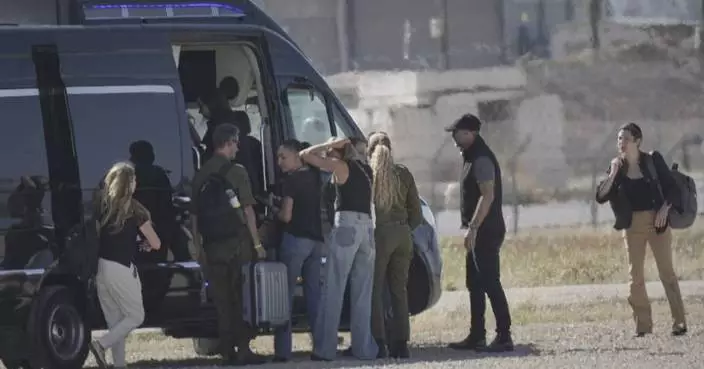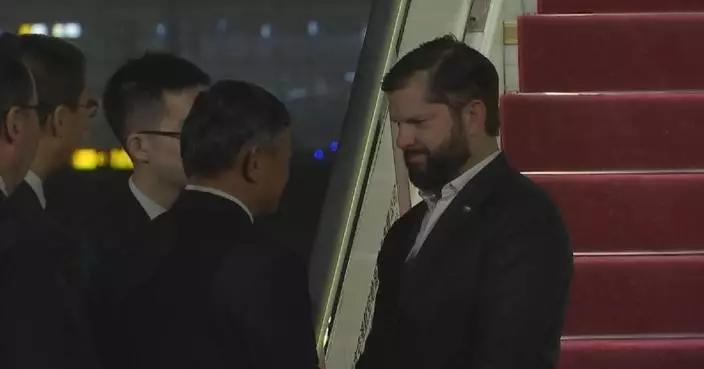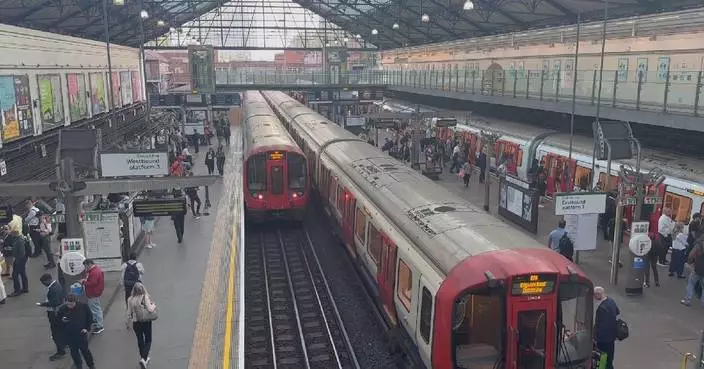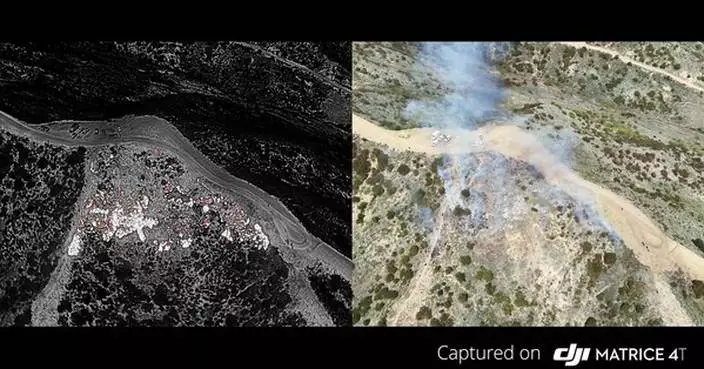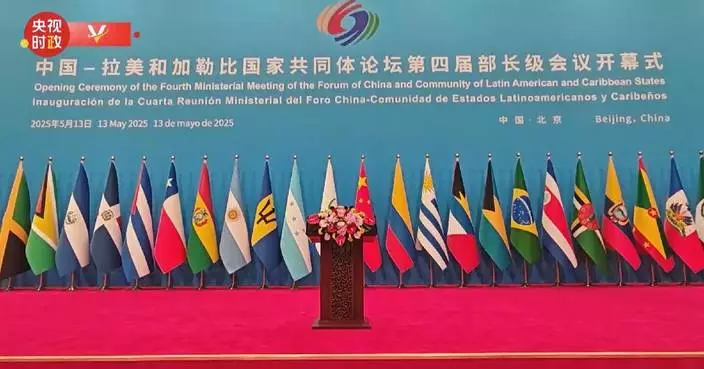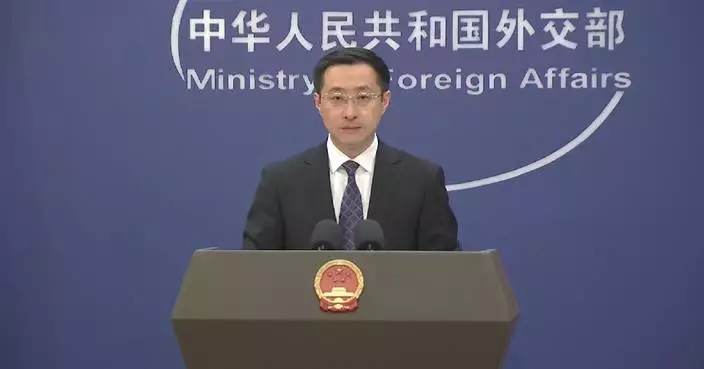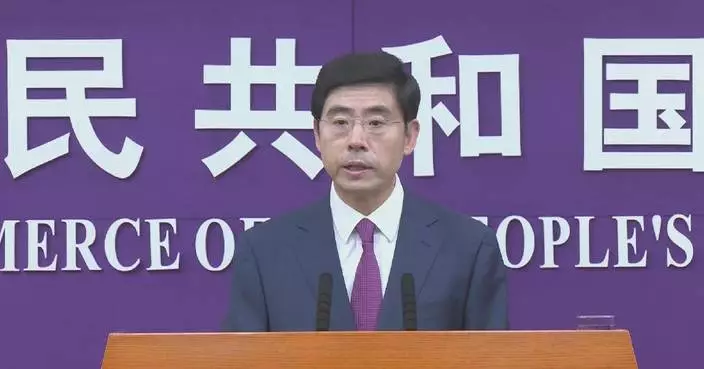NEW YORK (AP) — Mikal Bridges is being traded by the Brooklyn Nets to the New York Knicks, where he will join Jalen Brunson and his other former Villanova teammates, two people with knowledge of the details said Tuesday.
The first trade between the New York rivals since 1983 will put Bridges in the lineup alongside Brunson, Josh Hart and Donte DiVincenzo, players who helped the Wildcats win two NCAA championships and were the core of a Knicks lineup that reached the Eastern Conference semifinals last season.
The Knicks will pay big to get him, with ESPN reporting that they are sending Bojan Bogdanovic to the Nets along with four unprotected first-round picks and one protected pick. The deal was confirmed to The Associated Press under condition of anonymity because it is not yet official.
The Nets acquired Bridges from Phoenix in the deal for Kevin Durant in February 2023 and he went on to average 26.1 points the rest of that season in helping Brooklyn reach the playoffs. The swingman scored 19.6 per game in 2023-24 but the Nets slipped to 32-50 and missed the postseason.
And while his team was struggling, he couldn't help but notice how much fun his friends were having just a few miles away. The Knicks signed Brunson in the summer of 2022, traded for Hart in the 2022-23 season and then signed DiVincenzo last summer, and reached the second round in both seasons.
The four players helped Villanova win the 2016 NCAA title, and Brunson, Bridges and DiVincenzo were still there when the Wildcats won again in 2018.
They clearly can't wait to get the band back together.
“This is crazy lol,” Bridges wrote on the social media platform X after the deal was reported.
Hart posted a picture of what appeared to be the four players smiling during a group video call.
The teams hadn’t made a deal since 1983, when the Nets were still in New Jersey and sent Len Elmore to New York for a future draft pick. This one gives Brooklyn more picks to build through the draft or package in further trades.
The Knicks had picks to move and have been looking to strengthen a team that has been on the rise. They were a game away from their first appearance in the Eastern Conference finals since 2000 last season despite losing a number of key players to injuries before and during the postseason.
Their new addition, on the other hand, doesn't get hurt.
Bridges was the runner-up for Defensive Player of the Year in 2022 and is currently the NBA's most durable player, which should quickly make him a favorite of Knicks coach Tom Thibodeau. He has played in all 474 games in his career — and never missed a game in college, either — and led the league in minutes played in both 2021-22 and 2022-23.
This story has been corrected to reflect that Brunson signed with the Knicks in the summer of 2022, not the Nets.
AP NBA: https://apnews.com/hub/nba
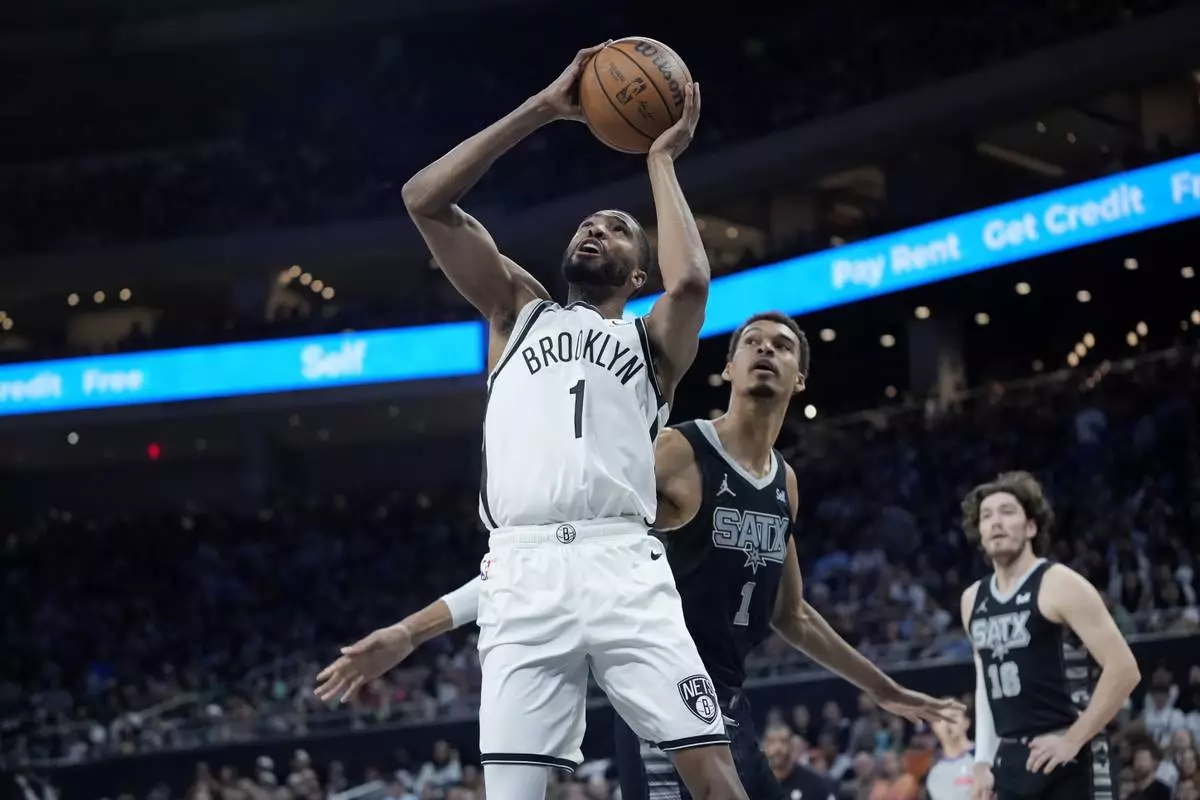
FILE - Brooklyn Nets forward Mikal Bridges, left, scores past San Antonio Spurs center Victor Wembanyama, center, during the first half of an NBA basketball game in Austin, Texas, March 17, 2024. Bridges is being traded from the Nets to the New York Knicks, where he will join Jalen Brunson and other former Villanova teammates, a person with knowledge of the details said Tuesday, June 25. (AP Photo/Eric Gay, File)
MONTEVIDEO, Uruguay (AP) — Former Uruguayan President José Mujica, a onetime Marxist guerilla and flower farmer whose radical brand of democracy, plain-spoken philosophy and simple lifestyle fascinated people around the world, has died. He was 89.
Uruguay's left-wing president, Yamandú Orsi, announced his death, which came four months after Mujica decided to forgo further medical treatment for esophageal cancer and enter hospice care at his three-room ranch house on the outskirts of Montevideo, Uruguay’s capital.
“President, activist, guide and leader,” Orsi wrote of his longtime political mentor before heading to Mujica's home to pay his respects. “Thank you for everything you gave us.”
Mujica had been under treatment for cancer of the esophagus since his diagnosis last spring. Radiation eliminated much of the tumor but soon Mujica’s autoimmune disease complicated his recovery.
In January, Mujica’s doctor announced that the cancer in his esophagus had returned and spread to his liver. In recent days, “he knew that he was in his final hours,” said Fernando Pereira, the president of Mujica's left-wing Broad Front party who visited the ailing ex-leader last week.
As leader of a violent leftist guerrilla group in the 1960s known as the Tupamaros, Mujica robbed banks, planted bombs and abducted businessmen and politicians on Montevideo’s streets in hopes of provoking a popular uprising that would lead to a Cuban-style socialist Uruguay.
A brutal counterinsurgency and ensuing right-wing military dictatorship that ruled Uruguay between 1973 and 1985 sent him to prison for nearly 15 years, 10 of which he spent in solitary confinement.
During his 2010-2015 presidency, Mujica, widely known as “Pepe,” oversaw the transformation of his small South American nation into one of the world’s healthiest and most socially liberal democracies. He earned admiration at home and cult status abroad for legalizing marijuana and same-sex marriage, enacting the region’s first sweeping abortion rights law and establishing Uruguay as a leader in alternative energy.
Rejecting the pomp and circumstance of the presidency, he drove a light blue beat-up 1987 Volkswagen Beetle, wore rumpled cardigan sweaters and sandals with socks and lived in a tin-roof house outside Montevideo, where for decades he tended to chrysanthemums for sale in local markets.
“This is the tragedy of life, on the one hand it’s beautiful, but it ends,” Mujica told The Associated Press in a wide-ranging Oct. 2023 interview from his farmhouse. “Therefore, paradise is here. As is hell.”
As the Uruguayan government declared three days of national mourning, tributes poured in from presidents and ordinary people around the world. The first to share remembrances were allied leaders who recalled not only Mujica's accomplishments but also his hallowed status as one of the last surviving lions of the now-receding Latin American left that peaked two decades ago.
Colombian President Gustavo Petro praised Mujica as a “great revolutionary." Bolivia’s former socialist president, Evo Morales said that he “and all of Latin America" are in mourning. Mexican President Claudia Sheinbaum called Mujica “an example for Latin America and the entire world.” Brazil's Foreign Ministry described him as “one of the most important humanists of our time.”
Chile's leftist President Gabriel Boric paid tribute to Mujica's efforts to combat social inequality.
“If you left us anything, it was the unquenchable hope that things can be done better,” he wrote. “The unwavering conviction that as long as our hearts beat and there is injustice in the world, it’s worth continuing to fight.”
Mujica never attended university and didn’t finish high school. But politics piqued his interest as early as adolescence, when the young flower farmer joined the progressive wing of the conservative National Party, one of the two main parties in Uruguay. His pivot to urban guerrilla warfare came in the 1960s, as leftist struggles swept the region in the wake of the Cuban Revolution.
He and other student and labor radicals launched the Tupamaros National Liberation Movement, which quickly gained notoriety for its Robin Hood-style exploits aimed at installing a revolutionary government.
By 1970 the government cracked down, and the Tupamaros responded with violence, planting bombs in upscale neighborhoods and attacking casinos and other civilian targets, killing more than 30 people.
Mujica was shot six times in a firefight with police in a bar. He helped stage a prison break and twice escaped custody. But in 1973 the military seized power, unleashing a reign of terror upon the population that resulted in the forced disappearance of some 200 Uruguayans and the imprisonment of thousands.
During his time in prison, he endured torture and long stretches in solitary confinement, often in a hole in the ground.
After power returned to civilians in 1985, Mujica left prison under an amnesty that covered the crimes of the dictators and their guerrilla opponents. He entered mainstream politics with the Broad Front, a coalition of radical leftists and centrist social democrats.
Rapidly rising through the party ranks, Mujica charmed the country with his low-key way of living and penchant for speaking his mind. In 2005 he entered government with the Broad Front as an agricultural minister. Just four years later he was Uruguay’s 40th president, elected with 52% of the vote.
His wife, Lucía Topolansky, a former co-revolutionary guerrilla member who was also imprisoned before becoming a prominent politician, bestowed the presidential sash on Mujica at his inauguration — as is custom for the senator who had received the most votes. They married in 2005 and had no children.
“I’ve been with him for over 40 years, and I’ll be with him until the end,” she told a local radio station Sunday as Mujica's condition deteriorated.
Pepe’s bracingly modest and spontaneous style as president — distributing pamphlets in the streets against machismo culture, lunching in Montevideo bars — made him a populist folk hero and token of global fascination.
“They made me seem like some impoverished president, but they were the poor ones ... imagine if you have to live in that four-story government house just to have tea,” he told the AP of his decision to shun the presidential palace.
Over his years in power, Mujica presided over comfortable economic growth, rising wages and falling poverty. In speeches, he pushed Uruguayans to reject consumerism and embrace their nation’s tradition of simplicity.
Under his watch, the small nation became known worldwide for the strength of its institutions and the civility of its politics — rare features most recently on display during Uruguay’s 2024 presidential vote that vaulted Orsi, Mujica’s moderate protégé, to power.
Mujica's greatest innovations came on social issues. During his term, Uruguay became the first country in South America to legalize abortion for the first trimester and the first in the world to legalize the production, distribution and sale of marijuana. His government also legalized same-sex marriage, burnishing Uruguay’s progressive image in the predominantly Catholic region.
Mujica’s government also powered a green energy revolution that transformed Uruguay into one of the world’s most environmentally friendly nations. Today the country generates 98% of its electricity from biomass, solar and wind energy.
His tenure was also not without controversy. The opposition complained of rising crime and a swollen fiscal deficit that forced his successor to raise taxes.
Some world leaders disapproved of his disdain for the established order. Conservative Uruguayans voiced outrage over his progressive policies.
Still, Mujica ended his tenure with a 60% approval rating. Ineligible to seek re-election because of a ban on consecutive terms, he continued to wield influence at home as an elected senator and abroad as a trailblazer and sage.
Even so, his humility defined him until the end.
“They ask you: ‘How do you want to be remembered?’ Vanity of vanities!” he exclaimed to the AP. “Memory is a historical thing. ... Years go by. Not even the dust remains.”
DeBre reported from Buenos Aires, Argentina. Associated Press writers Leonardo Haberkorn in Montevideo, Uruguay, and Nayara Batschke in Santiago, Chile, contributed to this report.
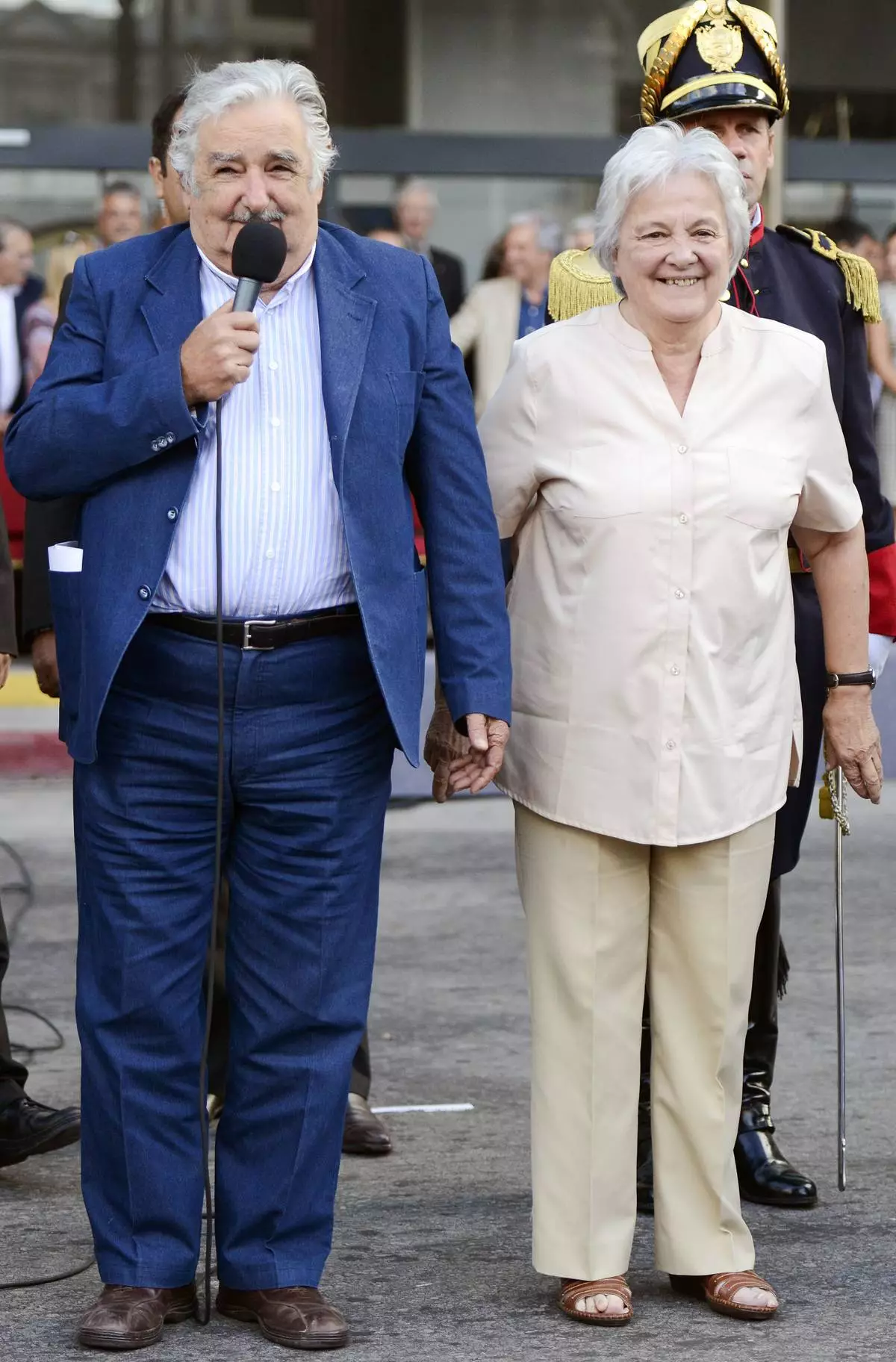
FILE - Uruguay's President Jose Mujica, left, and his wife Lucia Topolansky attend a flag ceremony in Montevideo, Uruguay, Feb. 27, 2015. (AP Photo/Matilde Campodonico, File)
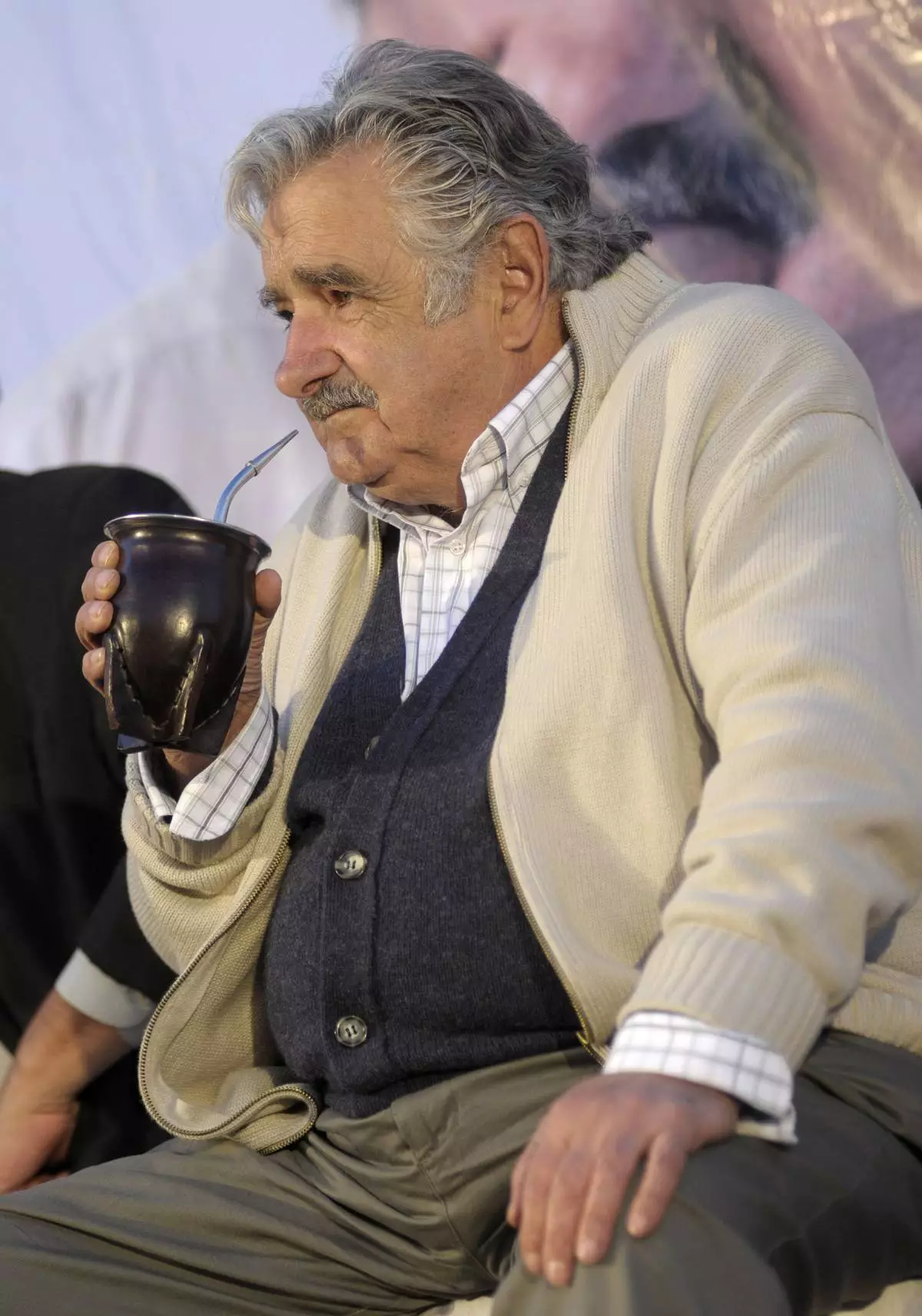
FILE - Presidential candidate Jose Mujica drinks mate during a closing campaign rally in Pando, Uruguay, Oct. 22, 2009. (AP Photo/Matilde Campodonico, File)

FILE - Jose "Pepe" Mujica, 74, presidential hopeful for the governing Broad Front leftist coalition, stands in a tractor on his flower farm after voting in Uruguay's general elections, on the outskirts of Montevideo, Oct. 25, 2009. (AP Photo/Matilde Campodonico, File)
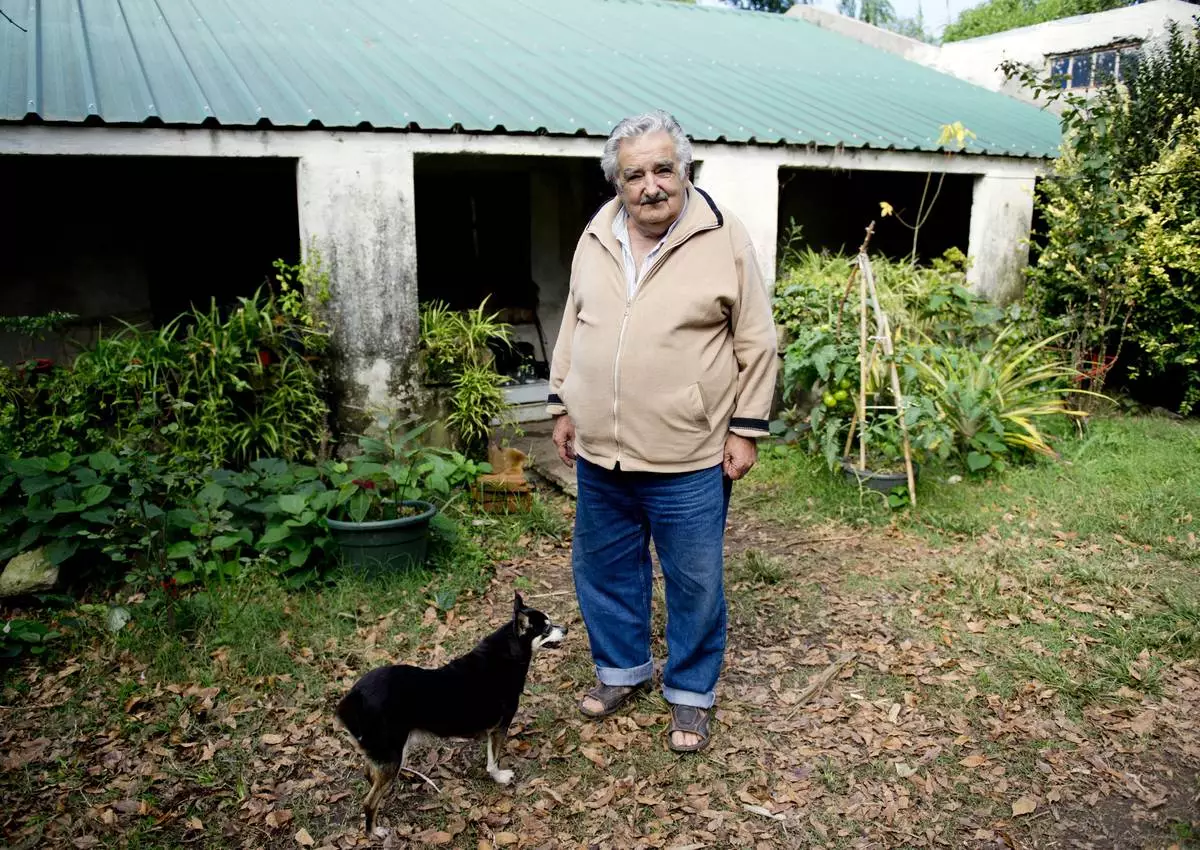
FILE - Uruguay's President Jose Mujica poses for a photo with his dog, Manuela, at his home on the outskirts of Montevideo, Uruguay, May 2, 2014. (AP Photo/Matilde Campodonico, File)
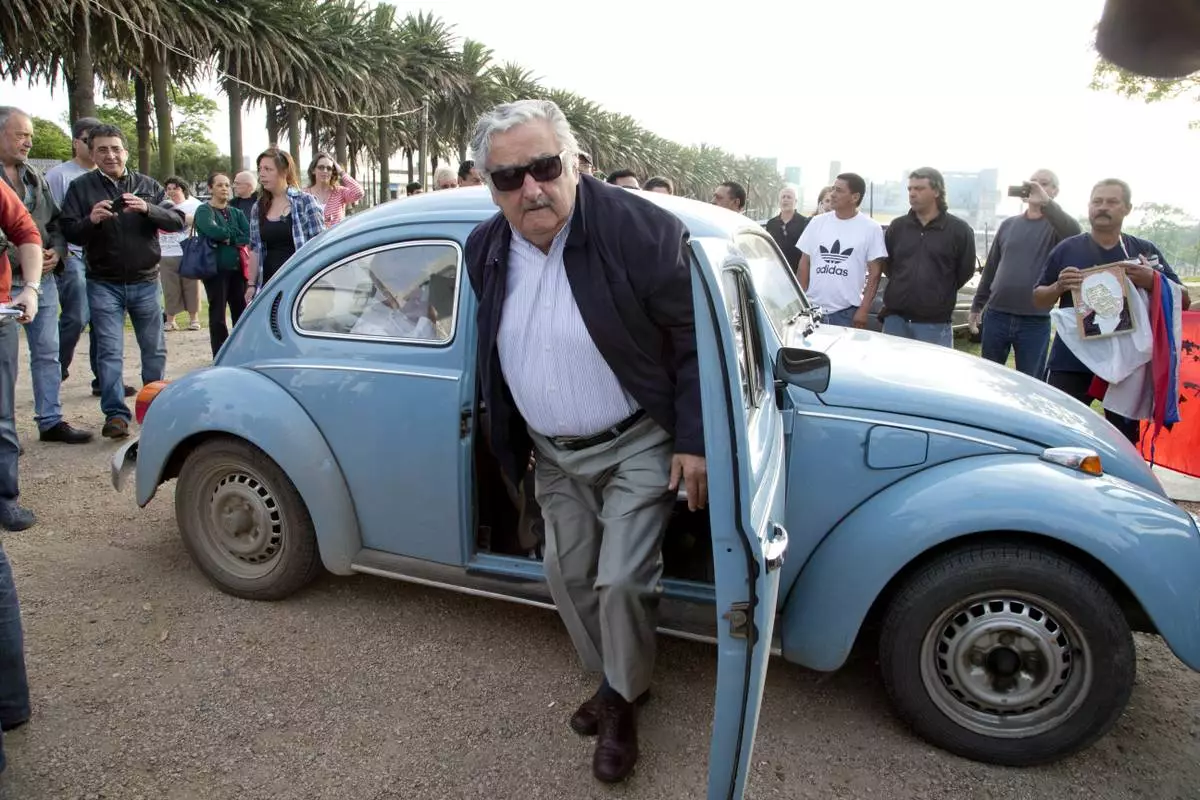
FILE - TO HOLD - Uruguay's former President Jose Mujica arrives to cast his vote in Montevideo, Uruguay, Oct. 26, 2014. (AP Photo/Natacha Pisarenko, File)



